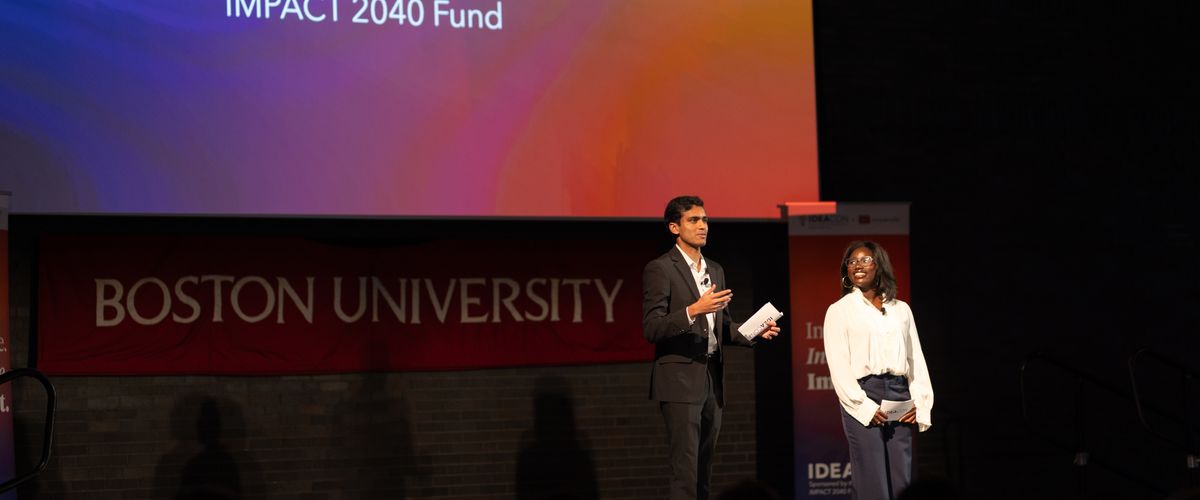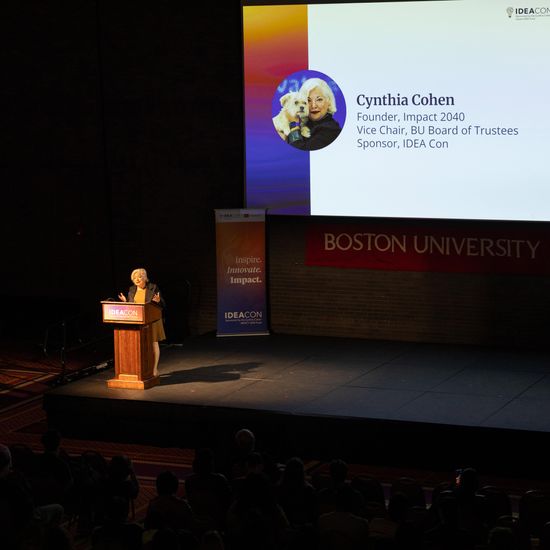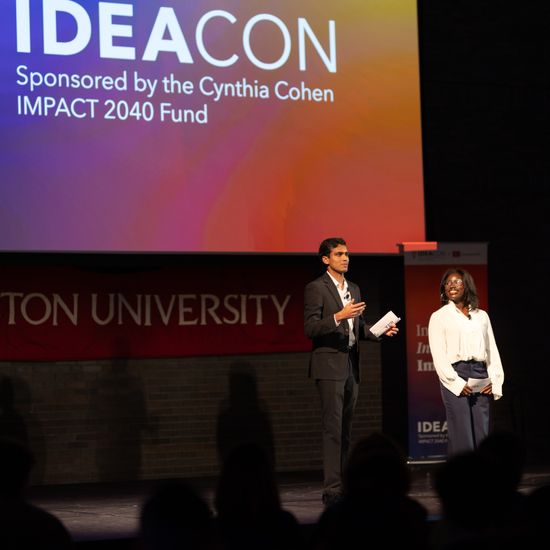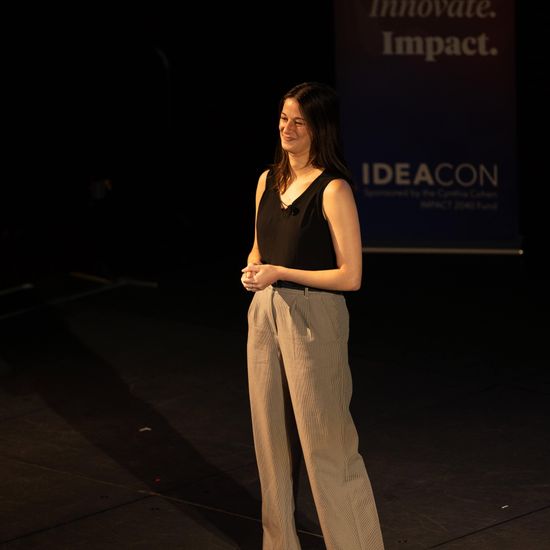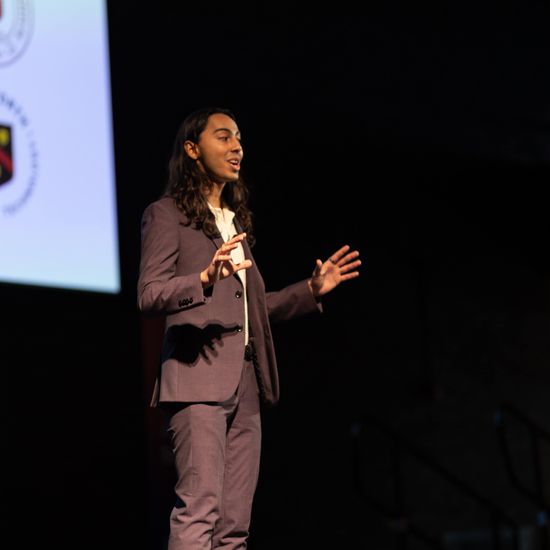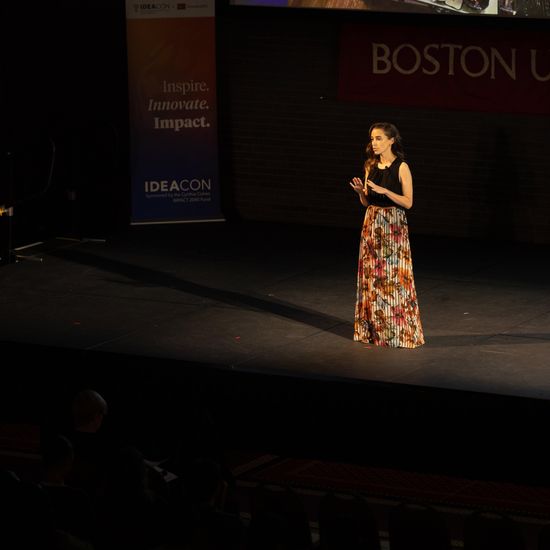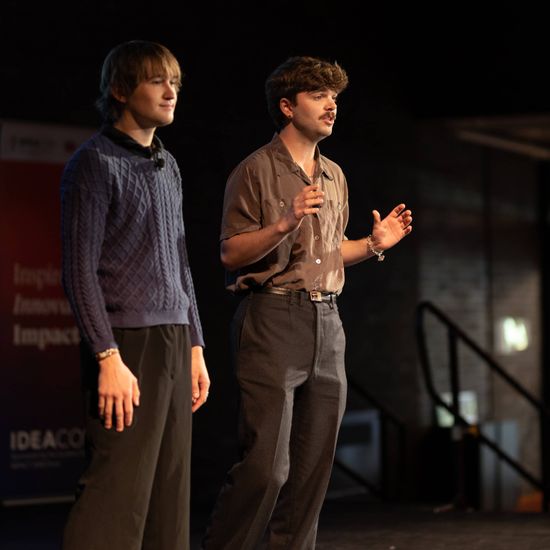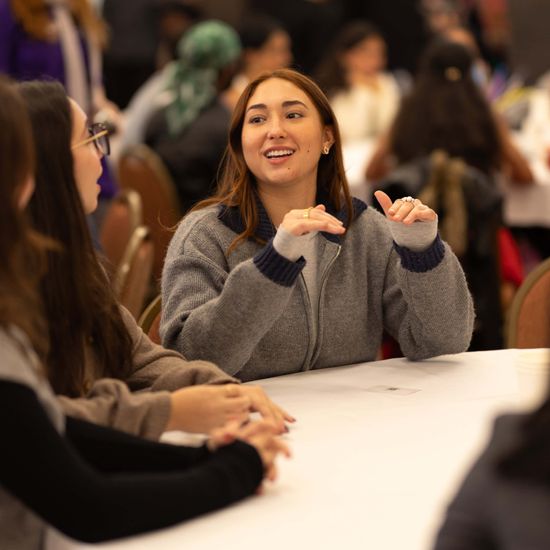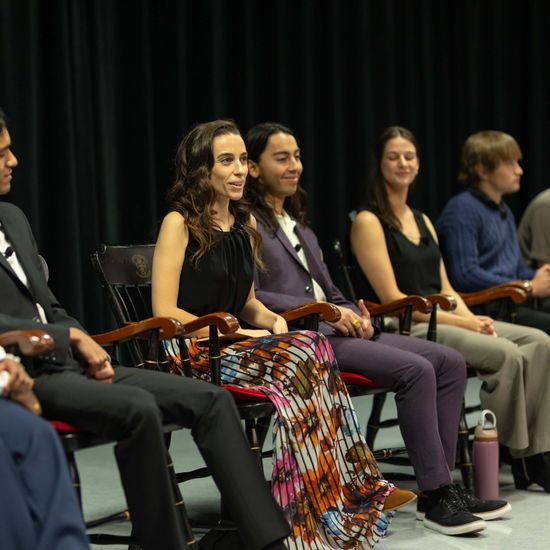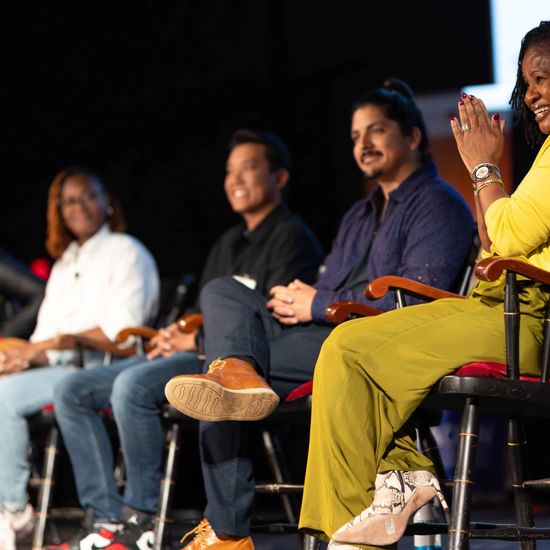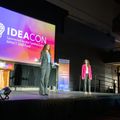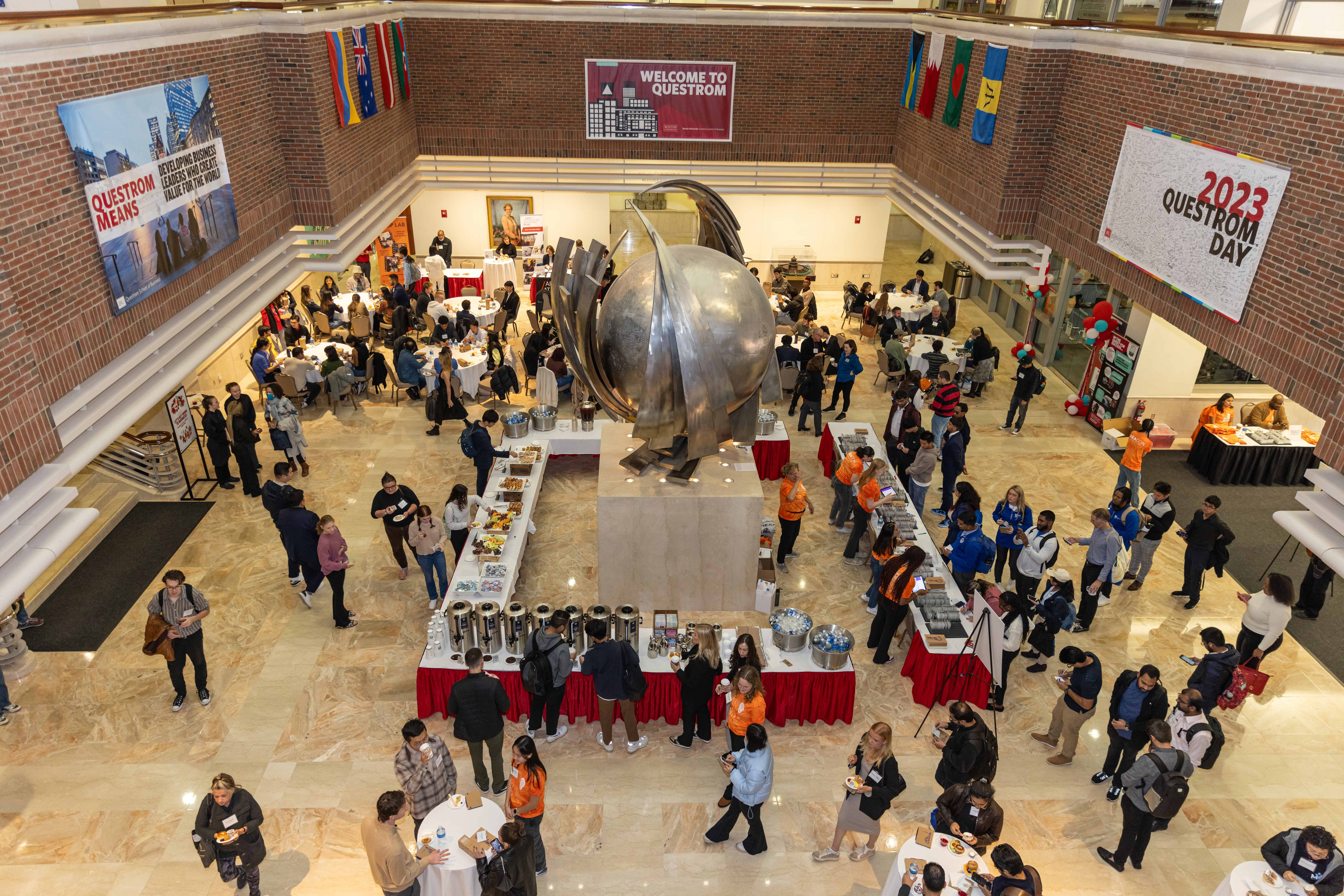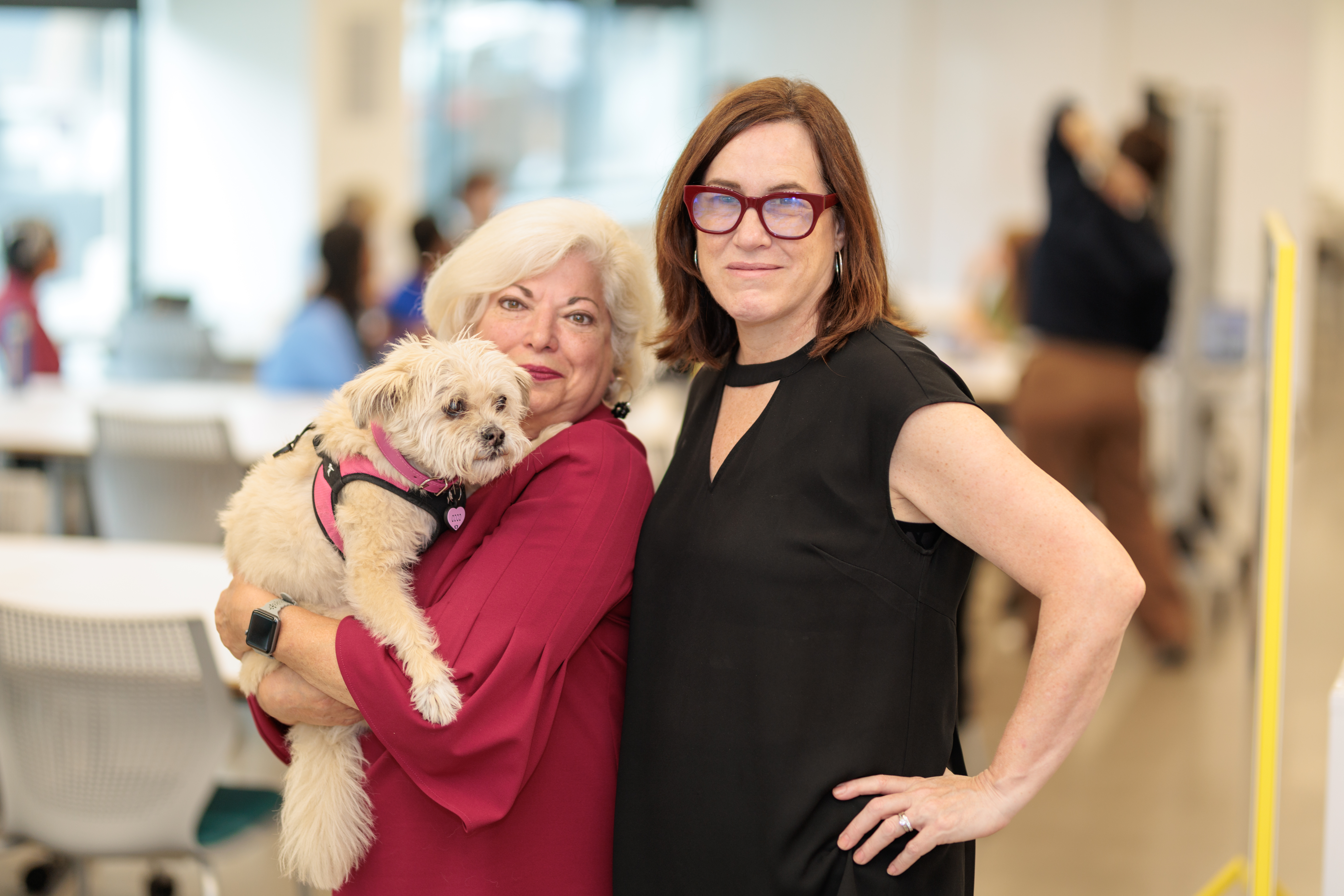IDEA Con, Boston’s Premier Student Entrepreneurship Conference, Continues to Grow
The George Sherman Union buzzed with entrepreneurial energy on October 25 as 540 attendees, representing over 40 schools across the Northeast, gathered for the eighth annual IDEA Con, presented by Innovate@BU. This year’s conference, the largest in its history, brought together student innovators who are tackling everything from sustainability in fashion to accessibility in education.
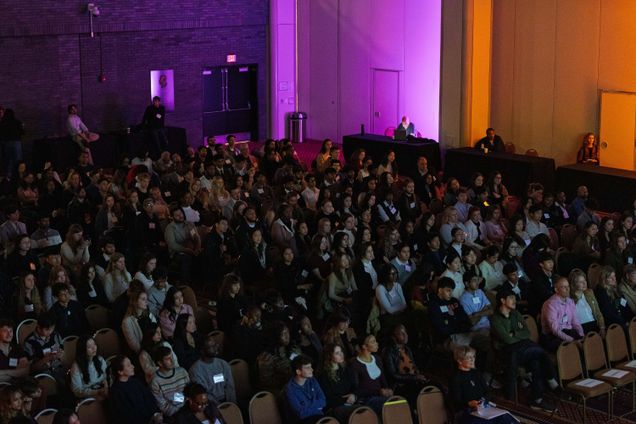
Cynthia Cohen (MET), Vice Chair of the Boston University Board of Trustees and conference sponsor, opened the day with remarks about the power and importance of inclusive innovation. The event was expertly guided by student emcees Nevaeh Calliste-Williams (COM’25) and Treshan Nilaweera (Questrom’25), who kept the energy high throughout the day’s packed schedule of workshops, panels, and networking opportunities.
The morning’s IGNITE presentation — mini TED Talks — featured five student entrepreneurs who shared their journeys from discovering a problem they wanted to solve, to the challenges they faced, and ultimately the solutions they’re developing.
Sophie Letcher from Tufts University opened with her story about EntoCellular, a company producing sustainable pet food ingredients from insect cells. Sophie compared her entrepreneurial journey to the metamorphosis of a caterpillar, noting that her PhD research on caterpillar cells led to an unexpected pivot when academic funding fell through. “We’d seen successful businesses spin out of our lab before but we never thought that could be us – but now we started to question: why not us? Why not turn this promising research into a new venture?” EntoCellular would go on to win the Tufts New Venture Competition.
Jetrin Orenberg from UMass Lowell presented the Comprehension Clicker, a classroom tool that allows students to anonymously share their understanding of material in real time. His journey began with a cease and desist letter from Paramount at age 14 for a SpongeBob video game that attracted 19,000 players. “Do you understand what class was about today?” Jetrin recalled asking a friend during a particularly confusing physics class, discovering he wasn’t alone in his confusion. His solution, now patent-pending, will be field-tested in 10 Massachusetts schools this spring.
Andrea Catania (MET’24) brought a unique perspective from the culinary world to social entrepreneurship. Having worked everywhere from fine dining restaurants to Whole Foods, Andrea co-founded EquiTable, a food justice organization that builds public kitchens as community infrastructure. “It’s not about the meatloaf,” Andrea explained, describing how true hospitality is about care rather than transaction. Earlier this year, EquiTable collaborated with a Charlestown community partner to build a permanent public kitchen where people gather to make pupusas, share culinary memories, and question why their neighborhood lacks a grocery store.
Dylan Beaudry and Ryan Wright from Northeastern University closed the IGNITE talks with their story of Reclaim, an LLC that has diverted over 50,000 pounds of clothing from landfills in just six months. What started as competitors racing each other to the Goodwill on Harrison Avenue turned into a partnership when they realized they could accomplish more together. “Every second, one bale like this is thrown into a landfill,” Ryan explained, referring to the 1,000-pound clothing bales that move through the textile waste system. Their Fill A Bag events, where customers pay $20 to fill a bag with thrifted clothes, have grown so popular that their second event sold 1,000 bags, bringing in $20,000.
The day featured multiple workshop tracks, including sessions on design thinking, pitching, and networking. Emma Wirt from Fika Ventures led a session on transitioning from computer science to venture capital, while Michael Ciuchta from UMass Lowell coached attendees on pitching themselves and their ideas. The afternoon’s Rapid Fire Shark Tank gave participants the chance to practice their pitches in a high-energy environment. Workshop leaders Wendy Swart Grossman and Jen Guillemin from Creative Re/Frame led participants through exercises in sparking innovation, using everyday materials like pipe cleaners and aluminum foil to prototype solutions. Their session emphasized that innovation doesn’t require perfection from the start – a theme that resonated throughout the day’s presentations.
Matthew Shifrin, founder of Bricks for the Blind, engaged attendees throughout the day with a collaborative LEGO building activity where participants constructed the IDEA Con logo together. Matthew’s presence added an inclusive design element to the conference, demonstrating how innovation can make experiences accessible to everyone.
The conference culminated with the Entrepreneur Bazaar and TrEat Party, where local ventures showcased their products and services and attendees could trade in 4 tickets for a variety of items, then network over dessert. The bazaar transformed the ballroom into a marketplace of ideas, with everything from sustainable fashion to tech innovations on display.
